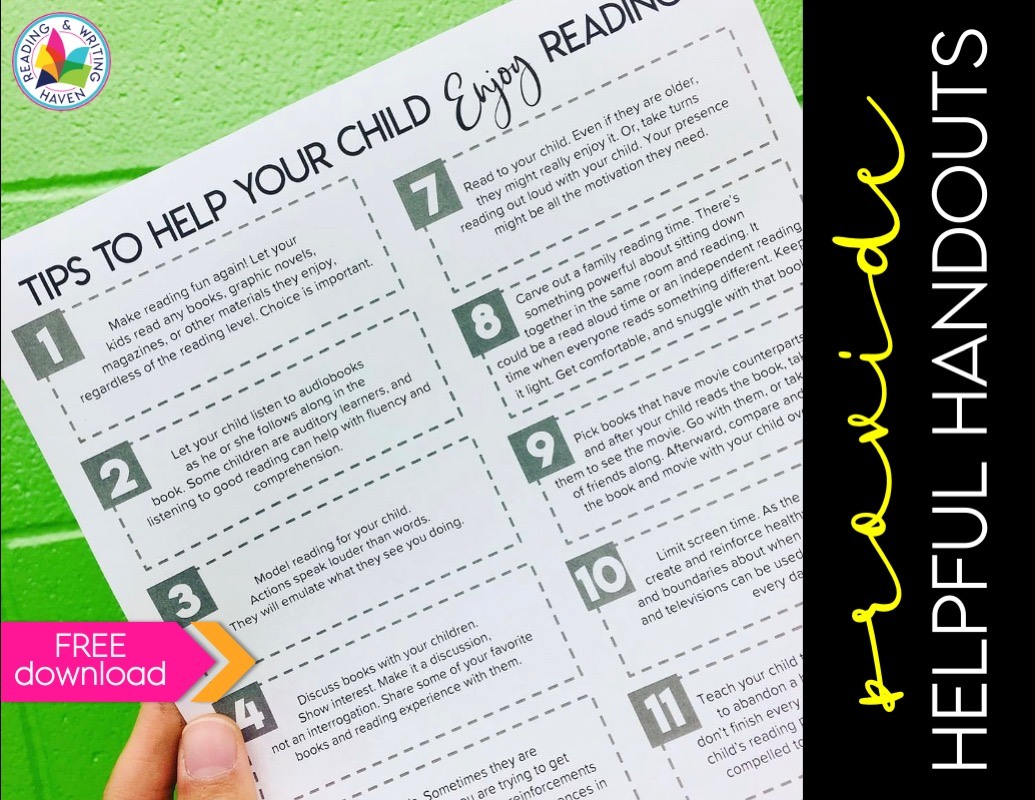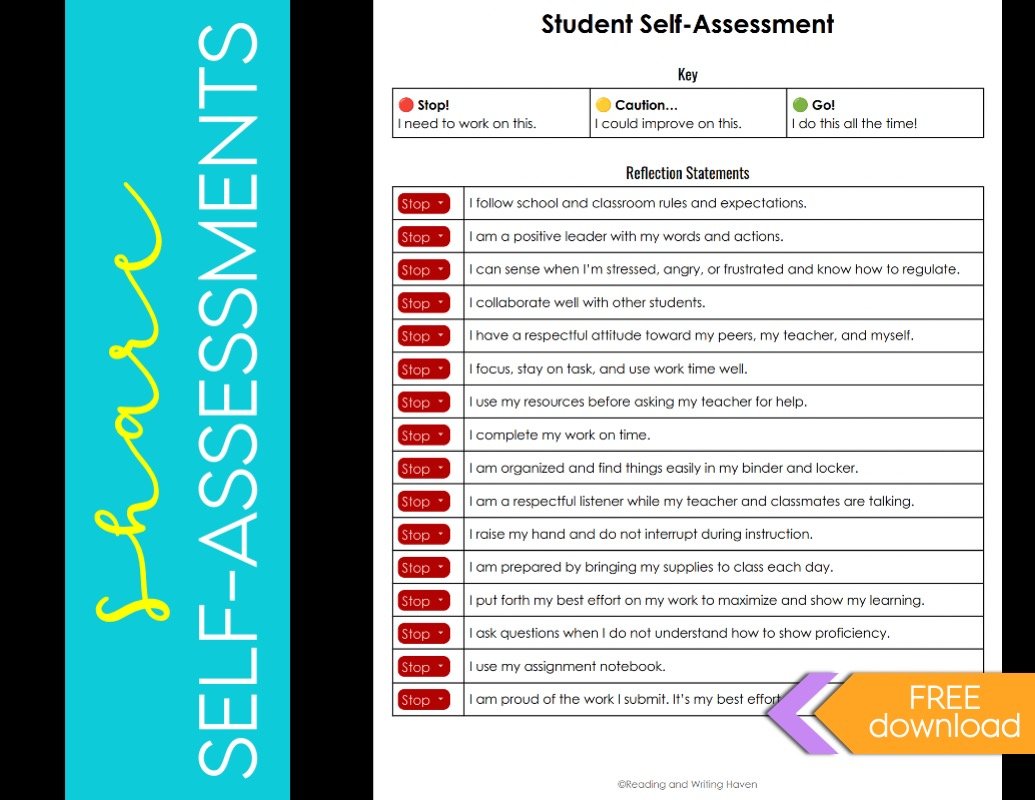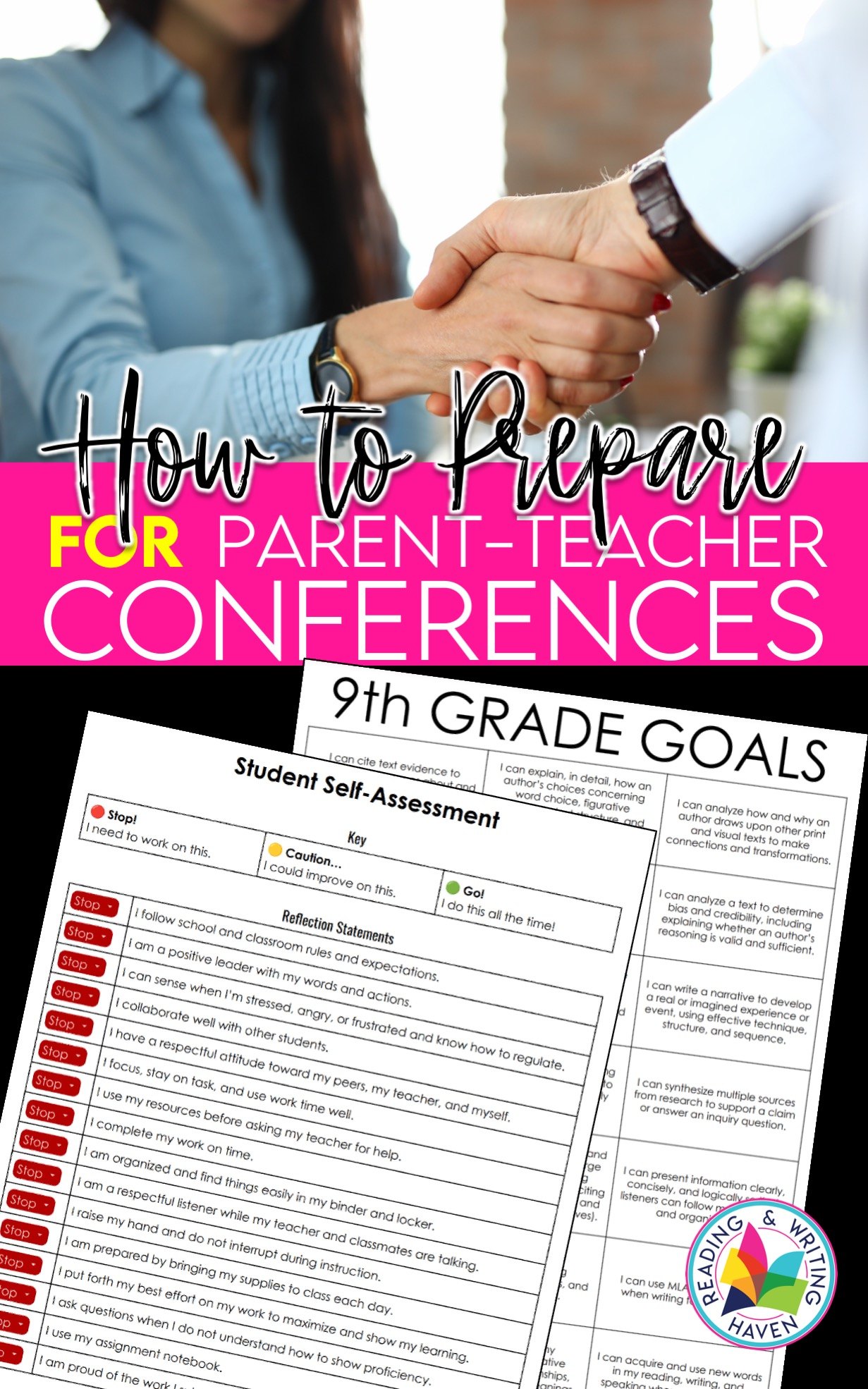6 Easy Ways to Prepare for Parent-Teacher Conferences
Are parent-teacher conferences in your near future? Getting organized is important. It can be challenging to communicate everything you want guardians to know in a short 10 or 15 minute window. Summarizing key details is critical. Think of parent-teacher conferences as the abstract to a larger body of work. What can you share with parents and guardians that will provide them with the insight they need to navigate conversations and encourage their child at home? Keep reading for six easy ways to prepare for parent-teacher conferences.
Student Work
One simple way to prepare for parent-teacher conferences is to decide how you want to showcase a little bit of the work they have produced.
Parents are often waiting in the hallway for the conference before them to finish. Maximize their time by displaying student work for them to browse. This may be pictures on an automatically looping screen, QR codes that lead to a class website, a class-created hall display, or it may be an example of their recent one pager.
Along with student work, you may choose to leave some mints, a sign-in sheet, and other helpful handouts, like book recommendations or tips for working on reading and writing skills at home.
Specific Insights
Parents want to know…what can you tell them about their child that they don’t already know? Rather than saying Jimmy is really good at book club discussions and that you have no concerns, try offering more detail. Consider this example…
One of Jimmy’s strengths is the role he plays in our class discussions. He is such a good listener. When I sit with Jimmy’s group, he often takes in everyone’s thoughts and then replies by offering a different point of view and backs it up with evidence from the reading. The next step in discussion skills for Jimmy is to work on participating more regularly. He has so many insightful ideas, and his group would benefit from hearing more of them!
As part of the specific feedback we offer parents, we can talk about progress toward a small number of grade-level goals. What is it we expect our students to know and be able to do by the end of our course? A letter grade may show evidence of learning…or it may just represent work that has been completed. By bringing specific learning expectations into the conversation, we may be able to offer parents some new insight about their learners.
Print off this editable goals sheet to help you prepare for parent-teacher conferences.
Self-Reflections
Another way to prepare for parent-teacher conferences is to have students reflect on their own learning and behavior! It can be helpful for parents to be able to compare a teacher’s feedback about their child’s progress with the child’s own insight. Often, the student feedback validates what the teacher sees. Sometimes, it doesn’t. That’s where the truly valuable conversation comes into play.
Does Taylor think she is showing respect for herself and others but you as the teacher note otherwise? Maybe Eli believes he is turning in his best work, but you as the teacher notice he often rushes through and doesn’t use your class writing rubrics to self assess. Parents can step into the gap and reinforce these areas for growth at home.
Did you know Google Docs now allows users to add drop-down menus? These handy tools are my new go-to for self reflections.
Curriculum Changes
At the beginning of the year, many teachers pass out a syllabus. Often, parents see them. But! By October, many parents and guardians may have forgotten the overview for the year.
As we teach, we often make curricular tweaks inspired by professional development or by our own students! Whether we are forging on as planned or making a pivot in our instruction, it helps to let parents know at parent-teacher conferences.
For example, maybe you’ve decided to ditch that reading log once and for all! Instead, you’re going to try out a more natural book fit monitoring system. When parents come in for conferences, this is a great conversation piece.
I’ve noticed students are not motivated by the reading log. I want my students to be reading in class and outside of school because it is so helpful to their growth in all content areas. As a result, I’m replacing the reading log with a book fit system. Students will be learning how to identify books they want to read and encouraged to read at least twenty minutes each night. Your child may need help finding the right space and time in the evening to do this reading.
Similarly, if you’re changing gears with classroom management, inform parents. Is the late work or re-take policy going to change? Are you adding re-take opportunities for students who need it? Let parents know.
Relationships
There are a few other considerations that can help when we prepare for parent-teacher conferences. Helping parents understand the close relationship we have developed with their student lets them see that we truly know their child.
Challenging Students
Often, the parents who come to conferences are the ones whose children are performing really well in our classes. These parents may want to know how we are challenging their children…how we are meeting them where they are, even if they are at the top of the class. For instance, Lucy is strong when it comes to making inferences in our class texts. The textbook we use has some pretty complex readings in it. I have begun to challenge her by partnering her up with peers who need some assistance with making inferences during class reading time. She will sit and read with a few other students, pointing out when and how she makes inferences to better comprehend the text. Lucy is always patient and thoughtful with this challenge.
Supporting Students
Of course, it also helps to show parents how we are supporting their students in areas they need to grow in. James has been doing a fabulous job of reading during our independent reading time. However, I’ve noticed he picks up a different book every day. It would be beneficial to his reading stamina if he knew how to choose a book he would want to commit to finishing, so I’ve been working with him on ways to do that. We’ve been talking about recognizing genres and authors he likes, reading the back cover and the first few pages to see if it grabs his attention, and giving a book several days to draw him in. If you notice him reading the same book at home over the course of a few days, please encourage him!
Knowing Our Kids
Likewise, parents may appreciate knowing that we truly see their child. People may have negative associations with their own school experiences, and we can begin to chip away at their view of what may be happening at school by showing them that we truly know and care about their child. For example, Ryan is often a leader in our class. He pushes chairs in for others, helps pick up supplies, and holds doors open without being asked. Once in a while, Ryan makes choices that irritate others around him, like making faces during read aloud time. I have noticed that Ryan responds well to praise and one-on-one attention. His poor choices are often indicators to me that he needs to be seen, so I try to find a moment to connect with him when that is happening. Usually, our brief one-on-one interaction gets Ryan back on track!
Reassuring parents that we truly see their child as more than just one student out of twenty seven goes a long way toward building relationships. Plus, providing this insight empowers parents to continue these conversations at home.
Test Data
Finally, while test data may be sent home by the district, parents usually appreciate receiving a quick explanation during parent-teacher conferences. Consider addressing these questions:
- What do the numbers mean?
- Where does their child fall in comparison with the intended achievement score and the student’s own growth goals?
- What information can we glean about the student from this data, and what are the limitations?
- How does this testing data clue you as a teacher in to a next step for instruction?
Make sure parents walk away focused on the positives of the testing data because it truly is only one small window into the overall picture of the child’s progress.
Preparing for parent-teacher conferences may take some time at first, but it’s rewarding to walk away from a conversation with a parent or guardian feeling like you’ve connected, you’re partnering together, or even like you’ve been validated for the work you’ve done. Moving forward, you’ll feel comfortable contacting that parent to work together for the child’s success. Over time, preparing for parent-teacher conferences will become second nature, and the conversations will flow easily.




